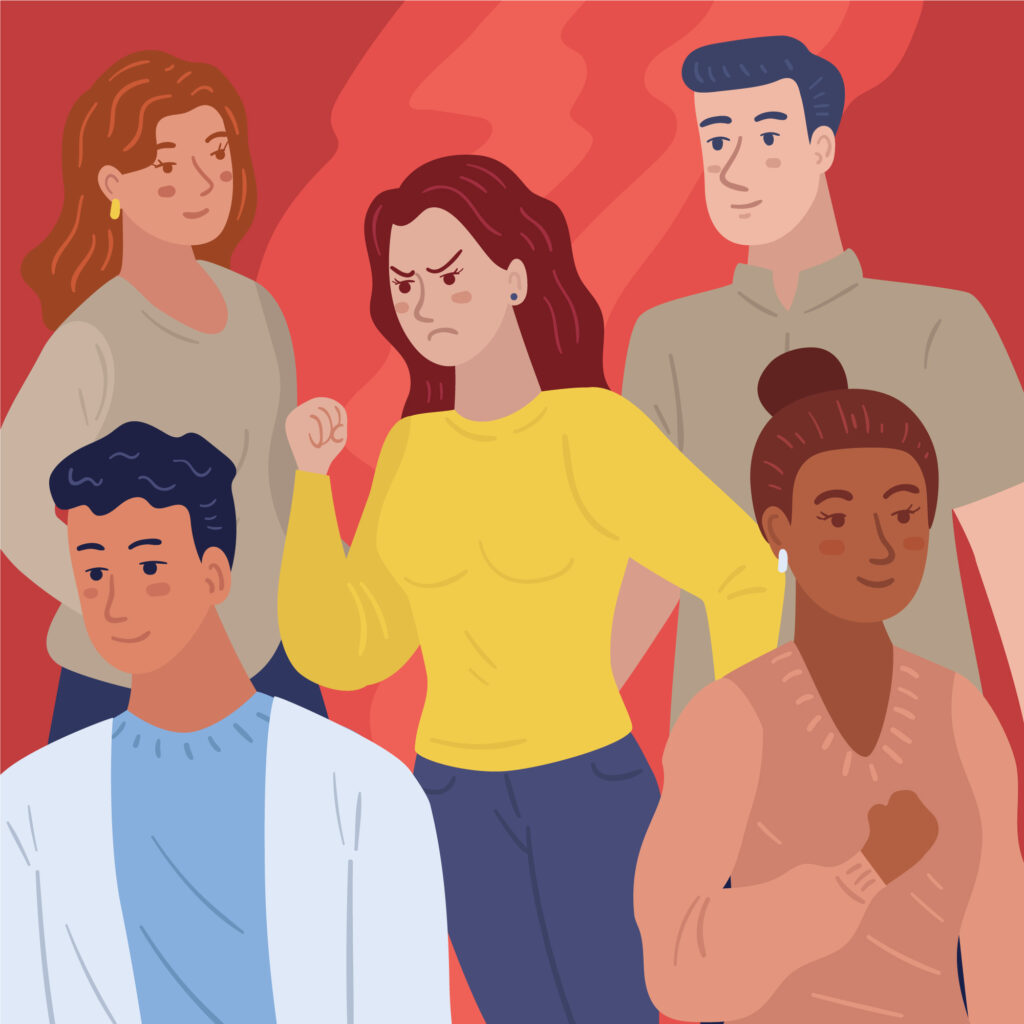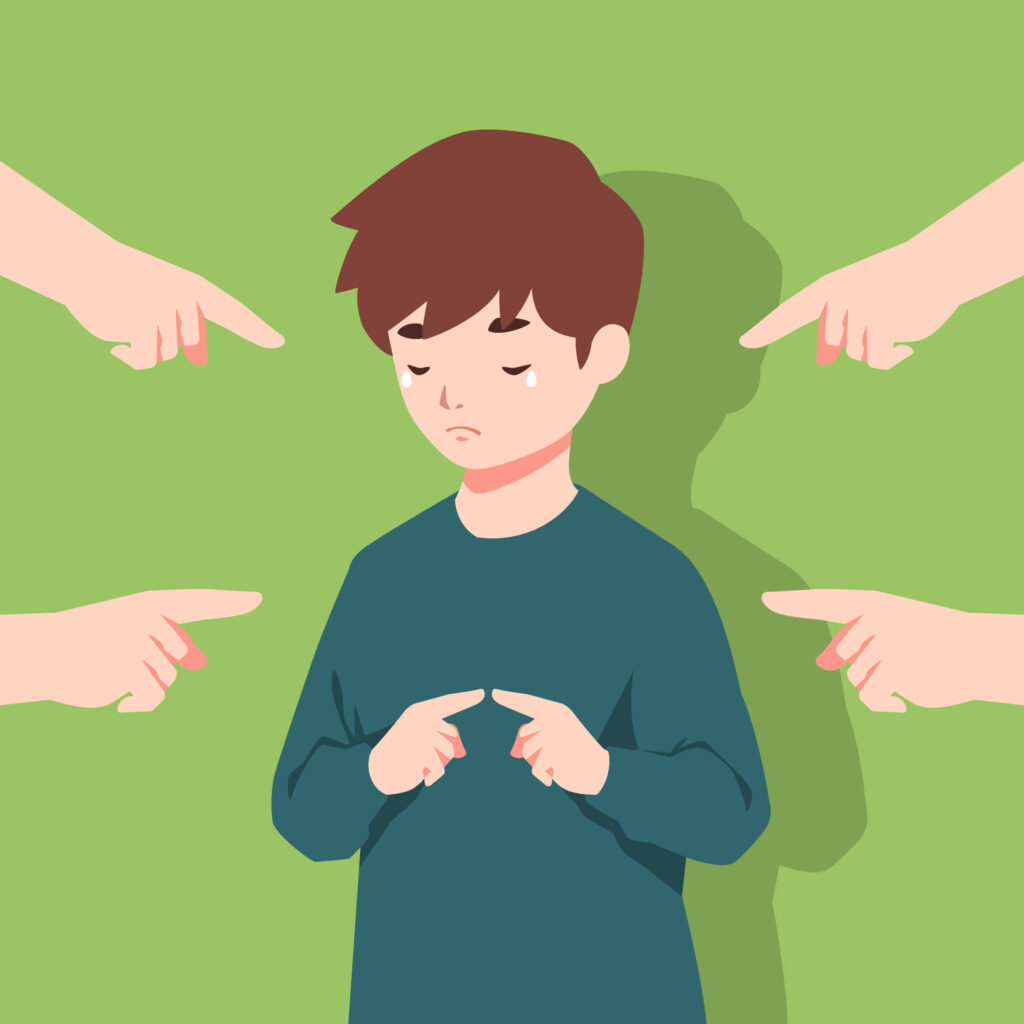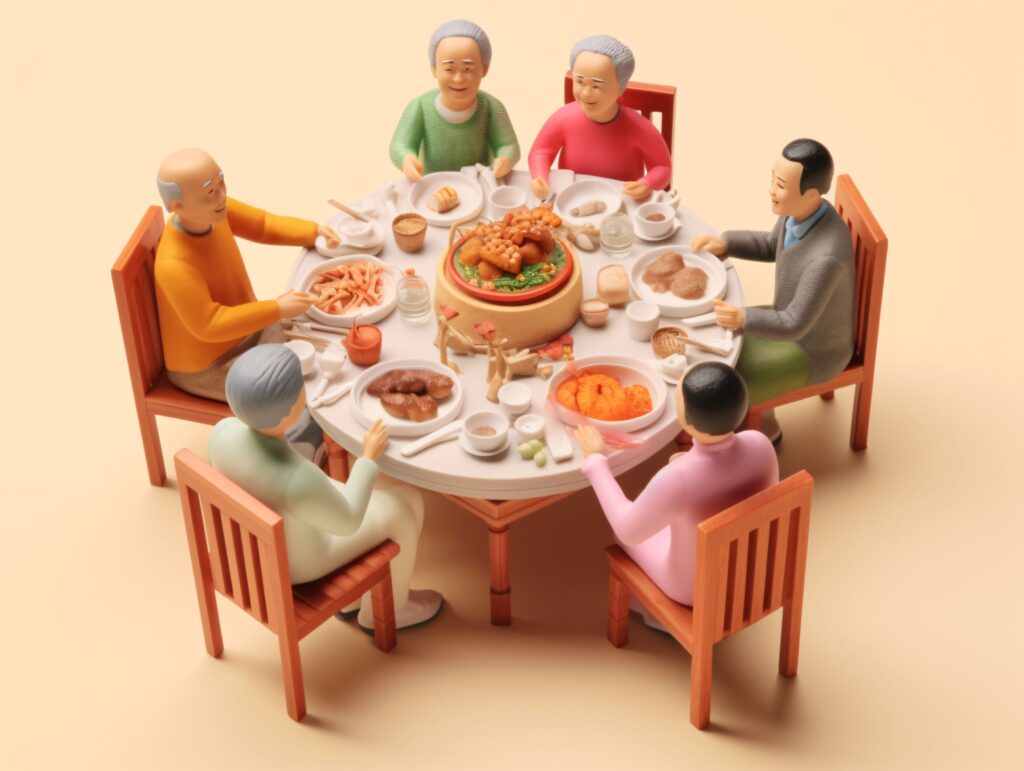Dealing with difficult people this Chinese New Year holiday can be tough. This is especially when those challenging relatives or family members show up. You’re looking forward to the food, fun, and festivities. But navigating family dynamics can sometimes make it harder to enjoy the season.
Why the Holidays Can Be Challenging: Dealing with Difficult Family Dynamics
The holiday season is often painted as the perfect time for joy, celebration, and family bonding. But let’s be real—this picture is not always the reality for many of us. If you dread big family gatherings, you’re not alone.
The holidays can be especially tough when dealing with difficult people, toxic relatives, differing values, and unresolved family dynamics. If you’re a parent, things can feel even more overwhelming with unsolicited advice, conflicting values, and worries about food and body image.
Let’s take a closer look at why the holidays can be so hard and how we can handle these challenges.

Toxic Relatives and the Stress They Bring
Let’s be honest: not every family gathering is filled with warm hugs and happy moments. Sometimes, dealing with difficult people, especially toxic relatives, adds more stress than cheer. Whether it’s through heated political debates or hurtful personal comments, these issues often come up at the dinner table, making it hard to relax and enjoy the moment.
Parenting Challenges During the Holidays
As parents, the holidays bring their own set of challenges—especially when it comes to raising kids in the midst of extended family. From unsolicited advice to conflicting values, it can feel like you’re walking a tightrope when dealing with difficult people in your family.
Unsolicited Parenting Advice: You know the type. The well-meaning (but often unhelpful) comments about how to discipline your kids, what they should be eating, or how they should behave. These can leave you feeling criticized and unsupported.
Navigating Different Values: Different family members can have very different values. While that’s usually manageable, it can lead to tension when someone criticizes your parenting choices in front of your children. This can be confusing for your kids, especially if what’s being said contradicts the values you’re working to instil at home.
Conversations About Food and Body Image: The holidays often bring a lot of food and, unfortunately, uncomfortable conversations about eating habits, weight, and body image. For teenagers or anyone struggling with body image, these discussions can be particularly harmful. It’s important to protect your kids from these conversations, so they can focus on enjoying the holidays without feeling judged.

Overcoming Stress and Emotional Regression When Dealing with Difficult People
Even the most independent adults can feel like they’re regressing emotionally when they’re around family during the holidays. You might catch yourself arguing with a sibling over a game. Or you might feel a bit sulky around your parents, and that’s okay. These reactions are tied to the attachment patterns we develop in childhood. The patterns continue to influence how we interact with our families as adults.
Attachment theory explains that early experiences with caregivers shape how we relate to others, including family members. People with secure attachments tend to communicate openly. Meanwhile, those with insecure attachments may struggle with either emotional distance or excessive closeness.
Stressful life events, especially in childhood, can impact these attachment patterns. Therefore, it’s not surprising that old dynamics resurface during family gatherings. Plus, your temperament plays a role—some of us are naturally more sensitive to conflict than others.
Surviving the Holidays When Dealing with Difficult People and Trauma
For those who have experienced trauma or abuse within their family, the holidays can stir up old feelings of grief, resentment, and loneliness. Society likes to paint the holidays as a time for family togetherness. But for many, it’s a painful reminder of what’s missing or broken. The gap between what you expect and what actually happens can make you feel even more isolated.
If the holiday season brings up painful memories, it’s essential to prioritize your emotional well-being. We can’t always change our family dynamics, but we do have control over how we respond. Many people find strategies that help them make it through the season with more peace and less stress when dealing with difficult people.
Tips for Dealing with Difficult People
Dealing with toxic relatives and family members is tough, but it’s possible to manage with a little preparation and clear boundaries. Here are some strategies to help you survive—and maybe even thrive—this holiday season:

- Set Boundaries Ahead of Time: Before the gathering, communicate what’s off-limits. For example, let your relatives know that parenting advice is a no-go.
- Plan What to Say and Do: If someone crosses a boundary, have a response ready. For example, if someone comments on your child’s eating habits, calmly say, “We’re happy with how we’re handling things, and we’d appreciate it if we didn’t talk about food choices.”
- Acknowledge Your Feelings: It’s okay to feel frustrated, sad, or even angry. Don’t suppress your emotions—acknowledging how you feel is the first step in healing.
- Have an Exit Strategy: If things get overwhelming, it’s perfectly fine to leave early. Set a time limit for the event, and stick to it.
- Focus on Your Immediate Family: If the family dynamic is tense, redirect your attention to your own loved ones. Play a game with your kids, watch a holiday movie together, or just enjoy the moment.
- Find Allies: If you have family members who get where you’re coming from, lean on them for support. They can help steer conversations away from sensitive topics or back you up when you set boundaries.
- Use the Gray Rock Technique: If a toxic relative is trying to provoke you, keep your responses as neutral as possible. Saying something like, “That’s an interesting perspective” without engaging deeply can prevent escalation.
- Debrief with Your Kids: If a toxic comment is made in front of your children, calmly explain the situation afterward. This helps them understand what happened and gives them a sense of security.
- Don’t Be Afraid to Skip the Gathering: If the environment feels too toxic, it’s okay to say no to the family gathering. Your mental health—and your kids’ mental health—comes first.
Creating New Traditions and Finding Peace
Rather than forcing yourself into a family dynamic that doesn’t work for you, try creating new traditions that align with your values and bring you peace. Whether that’s spending time with close friends, volunteering, or taking time for self-care, make sure you’re engaging in activities that help you recharge and connect with those who truly support you.
My Chinese New Year Story
Growing up in a small town in Sarawak, where the majority of the community was Chinese, Chinese New Year was always a major celebration. Relatives and friends from overseas would return home to help with preparations, spring cleaning, enjoy the reunion dinner, and attend various gatherings.
Nonetheless, family gatherings weren’t always free of tension or conflict. But I chose to focus on moments that lifted me up. One of those moments was counting down to watch the fireworks light up the entire neighbourhood—a 360-degree spectacle that last about an hour. You can catch a glimpse of that magic in the video below.
Summary
This Chinese New Year holiday doesn’t have to be a time of stress, tension, or unresolved family issues. By setting boundaries, seeking support, and prioritizing your emotional well-being, you can create a holiday experience that feels right for you and your loved ones.
It’s okay to redefine what the holidays mean to you. And sometimes, that means stepping away from family traditions that no longer serve you. Ultimately, the holidays should be a time for peace, joy, and connection, and it’s within your power to make it that way.
You are also welcome to contact me if I might be able to support you as you journey forward.

